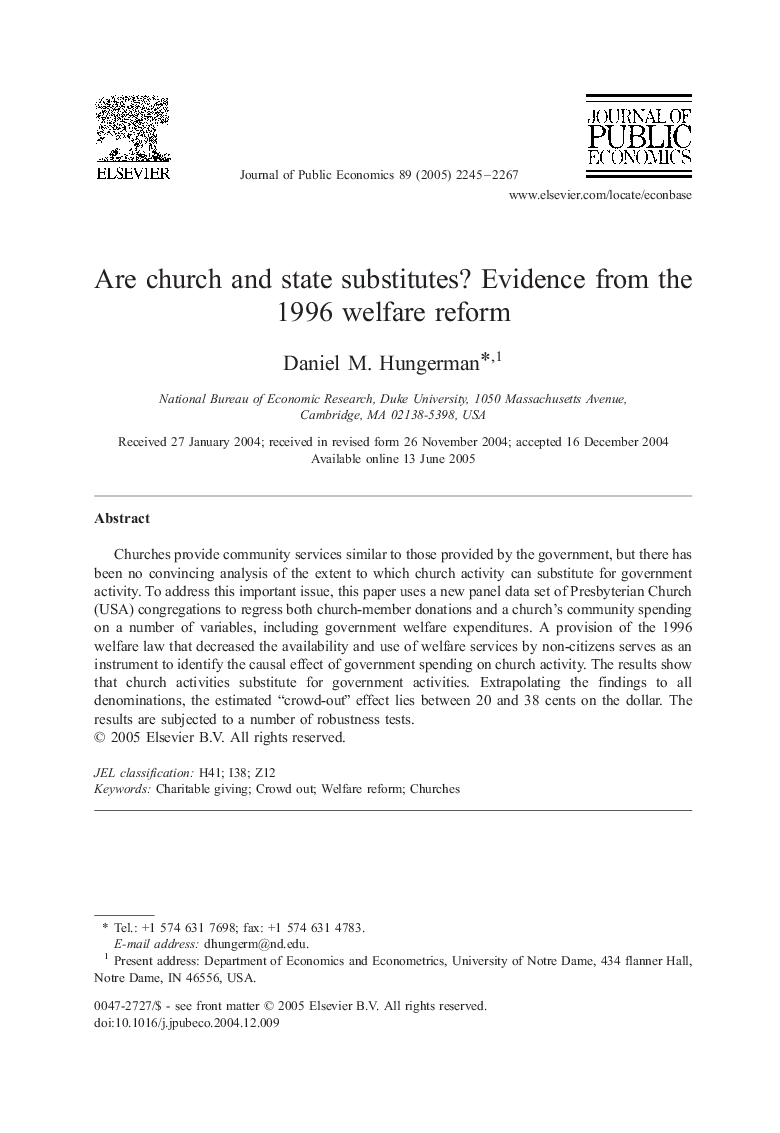| Article ID | Journal | Published Year | Pages | File Type |
|---|---|---|---|---|
| 969160 | Journal of Public Economics | 2005 | 23 Pages |
Churches provide community services similar to those provided by the government, but there has been no convincing analysis of the extent to which church activity can substitute for government activity. To address this important issue, this paper uses a new panel data set of Presbyterian Church (USA) congregations to regress both church-member donations and a church's community spending on a number of variables, including government welfare expenditures. A provision of the 1996 welfare law that decreased the availability and use of welfare services by non-citizens serves as an instrument to identify the causal effect of government spending on church activity. The results show that church activities substitute for government activities. Extrapolating the findings to all denominations, the estimated “crowd-out” effect lies between 20 and 38 cents on the dollar. The results are subjected to a number of robustness tests.
